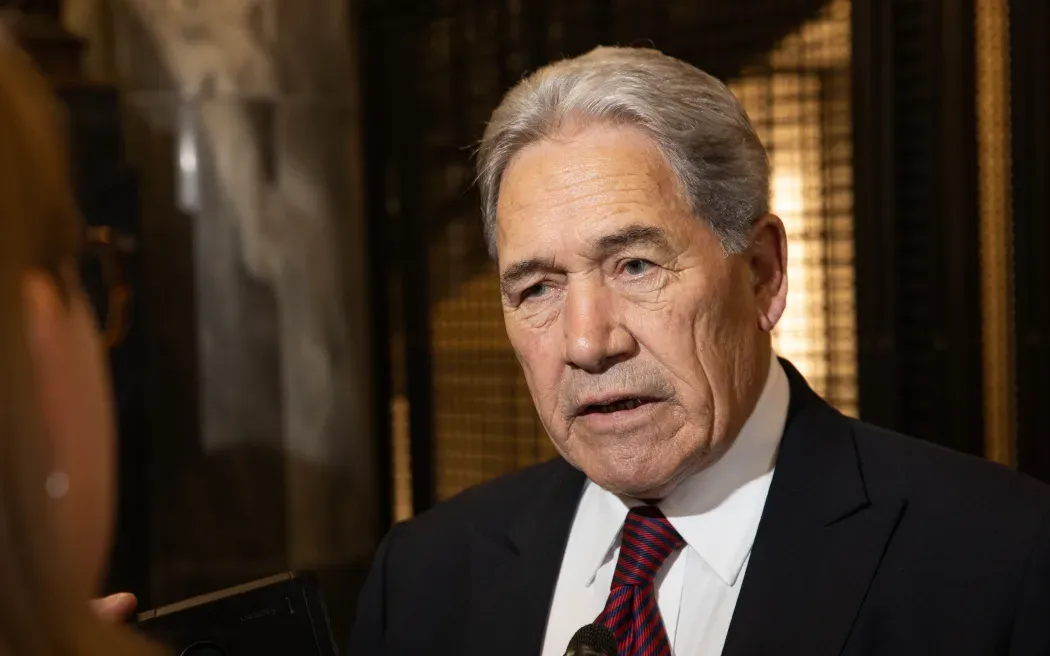Table of Contents
This video lecture on Aristotle’s ethics is amazing, I signed up immediately and have done two lectures today, with tests and rudimentary qualifications. It’s a free Philosophy course hosted by Hillsdale College with an option to donate. But there seem to be many other free courses. If the other courses are as compelling, I will be donating more. It feels very intimate. Like University should have been.
I can vaguely recall a remonstrance by Jung, in Modern Man in Search of a Soul. He wondered at the stupid modern habit we have of schooling from primary, secondary, then university, and stopping. No more learning from the age of 20. Off to the factories. He pleaded that we should learn constantly, through to old age. I think it was his father, as a minister, who filled this philosophical and teaching role in peoples lives as they aged, in the Victorian age. We, newbies, know better? This new medium will enable that learning to return to us, and bypass the left-wing administrators in our State Universities as a double bonus.
If you have a great Youtube or Vimeo video to share send it to videos@thebfd.co.nz
PS Following is a dump of the courses page. They all seem free to view if you are registered. Unbelievable. This is what an Arts Literature degree should be. I have a Science and Engineering Degree (double STEM thank god) but always looked at the Arts canon in awe.
Aristotle’s Ethics: How to Lead a Good Life
In the Nicomachean Ethics—the first book written on the subject of how best to live—Aristotle argues that human happiness chiefly depends upon a person’s character, which is formed by making good choices. This course examines Aristotle’s teachings about human nature, the meaning of the good, and the virtues necessary for happiness. Students will not only learn what Aristotle says about the good life, but will also explore ways to put this knowledge to work.
The Second World Wars
World War II, the greatest armed conflict in human history, encompassed global fighting in unprecedented ways. This course analyzes Allied and Axis investments and strategies that led one side to win and the other to lose. It also considers how the war’s diverse theaters, belligerents, and ways of fighting came eventually to define a single war.
Congress: How It Worked and Why It Doesn’t
The Framers of the Constitution institutionalized the legislative power in Article I, which grants limited powers to a bicameral Congress, with the aim of securing the rights of American citizens. In the early 20th century, Progressives introduced new conceptions of Congress and the legislative power, which resulted in a massive and ongoing transfer of legislative authority to unaccountable bureaucratic agencies. This course explores the Founders’ understanding of the legislative power and how Congress should work, the Progressive rejection of that understanding, and how that rejection has affected American politics.
The Young Jane Austen: Northanger Abbey
Jane Austen (1775-1817) is one of the greatest English novelists. Her first novel—published shortly after her death—was Northanger Abbey, which parodies the romanticized fiction popular in Austen’s day. A close study of Jane Austen’s ebullient writings reveals timeless truths about human nature and illuminates the beauty of everyday life.
Mark Twain: Tom Sawyer, Huckleberry Finn, and Selected Short Stories
Mark Twain—penname of Samuel Clemens (1835-1910)—has been called the father of American literature. Of Twain’s The Adventures of Huckleberry Finn, Ernest Hemingway said, “All modern American literature comes from one book by Mark Twain called Huckleberry Finn.” Twain’s realist fiction reveals timeless truths about human nature and encourages reform in the reader and society.
Western Heritage—From the Book of Genesis to John Locke
The Western heritage has its origins in the time of the ancient Hebrews and in classical Greece. The greatest accomplishments of the West, whether in philosophy, religion, politics, art, or science, can be traced back to these beginnings. This course will consider the history of Western Civilization from the Hebrews to the Glorious Revolution.
Introduction to the Constitution
The American Founders believed that the principles of the Declaration and the Constitution were not simply preferences for their own day, but were truths that the sovereign and moral people of America could always rely on as guides in their pursuit of happiness. This course considers the principles of the American Founding—which are described most famously and concisely in the Declaration of Independence—as well as key features of American government based on those principles. Led by Hillsdale College President Larry P. Arnn, the course also examines the major challenges posed by Progressivism to American constitutionalism.
Theology 101: The Western Theological Tradition
The Western theological tradition stretches back thousands of years to the time of the ancient Hebrews. This tradition has had a profound impact on the development of Western Civilization as a whole. This course will consider the origins and development of Western theology from the Old Testament through the twentieth century.
American Heritage—From Colonial Settlement to the Current Day
On July 4, 1776, America—acting under the authority of “the Laws of Nature and of Nature’s God”—declared its independence from Great Britain. The new nation, founded on the principle that “all Men are created equal,” eventually grew to become the most prosperous and powerful nation in the world. This course will consider the history of America from the colonial era to the present, including major challenges to the Founders’ principles.
The U.S. Supreme Court
Article III of the U.S. Constitution vests the judicial power “in one supreme Court, and in such inferior Courts as the Congress may from time to time ordain and establish.” According to Federalist 78, the judicial branch “will always be the least dangerous” to the liberty of the American people. Yet, judicial decisions have done much to advance a Progressive agenda that poses a fundamental threat to liberty. This course will consider several landmark Supreme Court cases in relation to the Founders’ Constitution.
Shakespeare: Hamlet and The Tempest
One of the world’s greatest poets, William Shakespeare is the author of plays that have been read and performed for more than 400 years. A close study of his works reveals timeless lessons about human nature, which offer a mirror for examining one’s own character. In Hamlet and The Tempest, Shakespeare considers those virtues and vices that make self-government and statesmanship possible or impossible to achieve.
Public Policy from a Constitutional Viewpoint
The American Founders wrote a Constitution that established a government limited in size and scope, whose central purpose was to secure the natural rights of all Americans. By contrast, early Progressives rejected the notion of fixed limits on government, and their political descendants continue today to seek an ever-larger role for the federal bureaucracy in American life. In light of this fundamental and ongoing disagreement over the purpose of government, this course will consider contemporary public policy issues from a constitutional viewpoint.
Athens and Sparta
A study of the ancient Greek cities of Athens and Sparta is essential for understanding the beginning of the story of Western Civilization. Moreover, such a study reveals timeless truths about the human condition that are applicable in any age. This course will consider life and government in Athens and Sparta, examine their respective roles in the Persian and Peloponnesian Wars, and offer some conclusions regarding their continuing relevance.
An Introduction to C.S. Lewis: Writings and Significance
C.S. Lewis was the greatest Christian apologist of the twentieth century. He was also the author of works of fiction, including The Chronicles of Narnia, and of philosophy, including The Abolition of Man. This course will consider Lewis’s apologetics and his fiction, as well as his philosophical and literary writings, and their continuing significance today.
Winston Churchill and Statesmanship
Winston Churchill was the greatest statesman of the 20th century, and one of the greatest in all of history. From a young age, Churchill understood the unique dangers of modern warfare, and he worked to respond to them. Though best known for his leadership during World War II, he was also a great defender of constitutionalism. A close study of Churchill’s words and deeds offers timeless lessons about the virtues, especially prudence, required for great statesmanship.
The Federalist Papers
Written between October 1787 and August 1788, The Federalist Papers is a collection of newspaper essays written in defense of the Constitution. Writing under the penname Publius, Alexander Hamilton, James Madison, and John Jay explain the merits of the proposed Constitution, while confronting objections raised by its opponents. Thomas Jefferson described the work as “the best commentary on the principles of government, which ever was written.” This course will explore major themes of The Federalist Papers, such as the problem of majority faction, separation of powers, and the three branches of government.
A Proper Understanding of K-12 Education: Theory and Practice
The American Founders recognized the central importance of education for the inculcation of the kind of knowledge and character that is essential to the maintenance of free government. For example, the Northwest Ordinance of 1787 states, “Religion, morality, and knowledge, being necessary to good government and the happiness of mankind, schools and the means of education shall forever be encouraged.” This course will consider the older understanding of the purpose of education, the more recent Progressive approach that has become dominant today, and some essential elements of K-12 education.
The Presidency and the Constitution
This free, 10-week, not-for-credit course, taught by the Hillsdale College politics faculty, will help you understand the structure and function of executive power in the American constitutional order. The course begins with the place of the president in the constitutionalism of the Founding Fathers and examines how that role has changed with the rise of the modern Progressive administrative state.
Great Books 102: Renaissance to Modern
This 11-week, not-for-credit course, taught by Hillsdale College faculty, will introduce you to great books from the Renaissance through the modern era. You will explore the writings of Shakespeare, Dostoevsky, Austen, Twain, and more. This course will challenge you to seek timeless lessons regarding human nature, virtue, self-government, and liberty in the pages of the great books.
Constitution 101: The Meaning & History of the Constitution
Taught by the Hillsdale College Politics faculty, this course will introduce you to the meaning and history of the United States Constitution. The course will examine a number of original source documents from the Founding period, including especially the Declaration of Independence and The Federalist Papers. The course will also consider two significant challenges to the Founders’ Constitution: the institution of slavery and the rise of Progressivism.
Great Books 101: Ancient to Medieval
This 11-week, not-for-credit course, taught by Hillsdale College faculty, will introduce you to great books from antiquity to the medieval period. You will explore the writings of Homer, St. Augustine, Dante, and more. This course will challenge you to seek timeless lessons regarding human nature, virtue, self-government, and liberty in the pages of the great books.
Economics 101: The Principles of Free Market Economics
This is a free, ten-week, not-for-credit online course offered by Hillsdale College. With introductory and concluding lectures by Hillsdale College President Larry P. Arnn, the eight lectures at its core—taught by Gary Wolfram, the William E. Simon Professor of Economics and Public Policy at Hillsdale College—will focus on the foundational principles of the free market. Topics will include the relationship of supply and demand, the “information problem” behind the failure of central planning, the rise of macroeconomics under the influence of John Maynard Keynes, and the 2008 financial crisis.
Constitution 201: The Progressive Rejection of the Founding & the Rise of Bureaucratic Despotism
This is a free, ten-week, not-for-credit online course offered by Hillsdale College. With introductory and concluding lectures by Hillsdale College President Larry P. Arnn, the nine lectures—taught by members of Hillsdale College’s politics department faculty—are a continuation of Constitution 101 (2012): The Meaning & History of the Constitution. These lectures will focus on the importance of the principles of the American Founding and the current assault on them by the Progressives.





